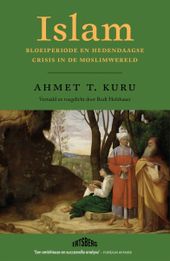
Islam, Democracy and Development
Many Muslim-majority countries struggle with problems of authoritarianism and underdevelopment. In this year’s ACMES annual lecture, Ahmet Kuru will explore this issue by discussing Islam and its relation to Western political and socioeconomic institutions. He will address the matter by referring to his award-winning book Islam, Authoritarianism, and Underdevelopment: A Global and Historical Comparison (Cambridge University Press, 2019).
In his lecture Ahmet Kuru will speak about the premises of his book Islam, Authoritarianism, and Underdevelopment, which will be published in Dutch with the title Bloeiperiode en hedendaagse crisis in de moslimwereld (Ertsberg) in May 2023. Kuru will elaborate an argument about the ulema-state alliance as the cause of authoritarianism and underdevelopment in the Muslim world from the eleventh century to the present. Criticizing essentialist, post-colonialist, and new institutionalist explanations, Kuru focuses on the relations between intellectual, economic, religious, and political classes in this annual lecture.
About the speakers
Ahmet T. Kuru is the director of Center for Islamic and Arabic Studies and a professor of Political Science at San Diego State University. He was a postdoctoral scholar at Columbia University. Kuru is the author of Secularism and State Policies toward Religion: The United States, France, and Turkey (Cambridge University Press, 2009). His recent book, Islam, Authoritarianism, and Underdevelopment, won three awards and was included in Times Literary Supplement’s Books of the Year. It has been translated into Indonesian, Arabic, Persian, Malay, Bengali, Bosnian, French, and Dutch.
Farid Boussaid (moderator) is an Associate Professor (universitair docent) at the Department of Political Science at the University of Amsterdam. He completed his doctorate at the University of Oxford. He obtained a Master’s degree in Middle East Studies from the University of Oxford and a Master’s degree in Development Studies from the London School of Economics. He holds a BA in Political Science and in Economics from the University of Amsterdam. He is the Co-Director of the Amsterdam Centre for Middle Eastern Studies.

:rgb(-15)

:rgb(-25)

:rgb(8)
